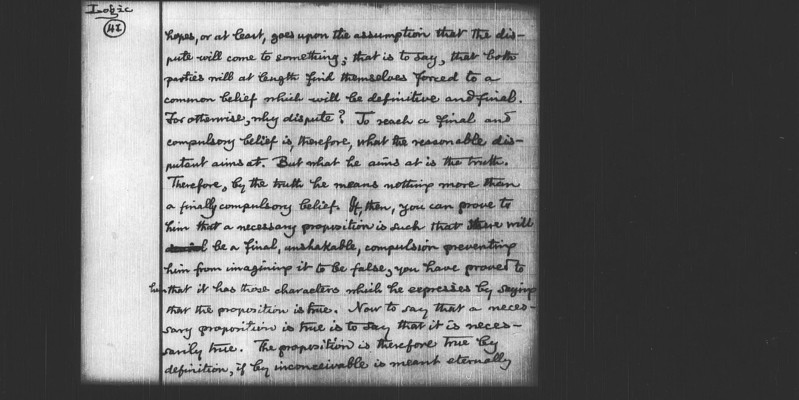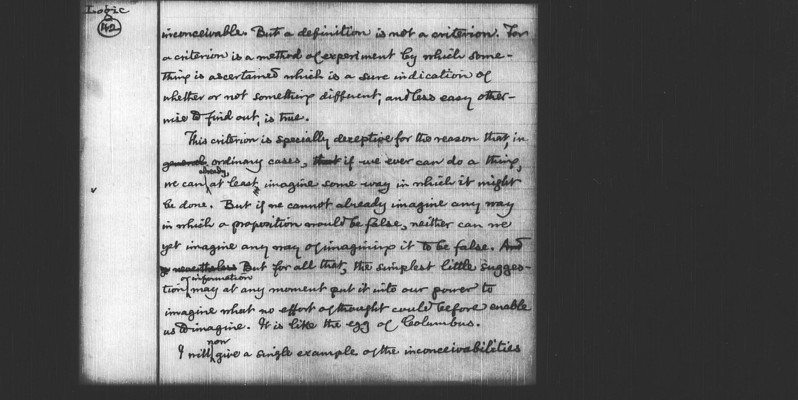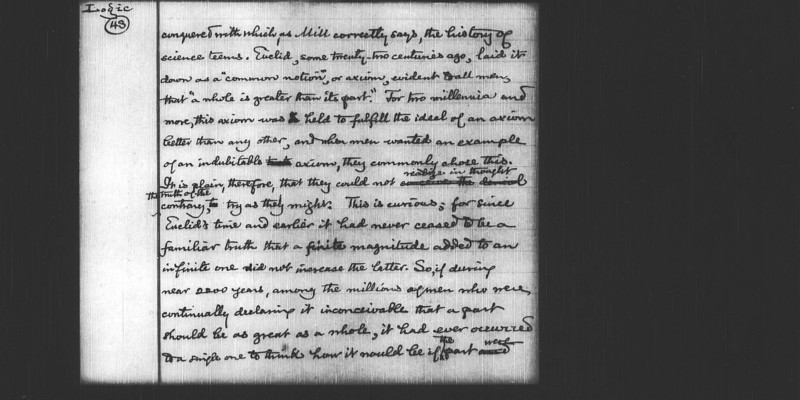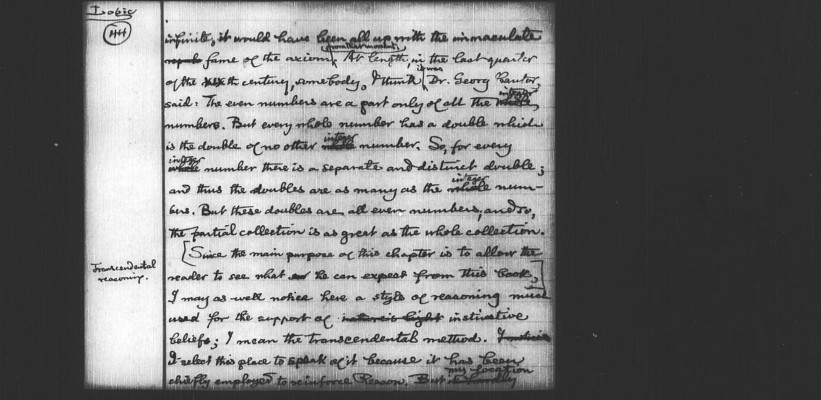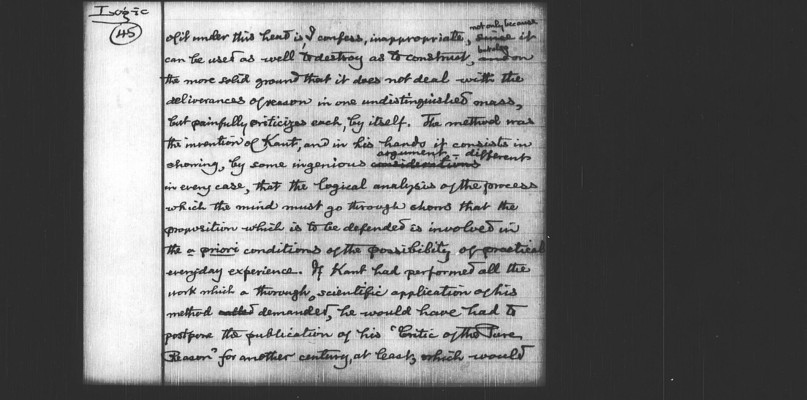Pages
41
Logic 42
hopes or at least goes upon the assumption that the dispute will come to something that is to say that both parties will at length find themselves forced to a common belief which will be definitive and final. For otherwise why dispute? To reach a final and compulsory belief is therefore ehat the reasonable disputant aims at. But what he aims at is the truth. Therefore by the truth he means nothing more than a finally compulsory belief. If then you can prove to him that a necessary proposition is such that [st?ere] will be final unshakeable compulsion preventing him from imaging it to false you have proved to him that it has those characters which he expresses by saying that the proposition is true. Now to say that a necessary proposition is true. Now to say that a necessary true. The proposition is therefore true by definition if by inconcievable is meant eternally
42
Logic 42
inconceivable. But a definition is not a criterion. For a criterion is a method of experiment by which something is ascertained which is a sure indication of whether or not something different and less easy otherwise to find out is true.
This criterion is specially deceptive for the reason that in ordinary cases if we ever can do a thing we can already at least imagine some way in which it might be done. But if we cannot already imagine any way in which a proposition would be false neither can we yet imagine any way of imagining it to be false. And but for all that the simplest little suggestion or information may at any moment put it into our power to imagine what no effort of thought could before enable us to imagine. It is like the egg of Columbus.
I will now give a single example of the inconceivablities
43
Logic 43
conqured with which as Mill correctly says the history of science teems. Euclid some twenty two centuries ago laid it down and a "common notion" or axion evident to all men that "a whole is greater than its part." For two millennia and more this axiom was held to fulfill the ideal of an axiom better than any other and when men wanted an example of an indubitable axiom they commonly chose this. It is plain therefore that they could not realize in thought truth of the contrary try as they might. This is curious for since Euclid's time and earlier it had never ceased to be a familiar truth that a finite magnitude added to an infitnite one did not increase the latter. So if during near 2000 years among millions of men who were continually declaring it inconceivable that a part should never be as great as a whole it had ever occurred to a single one to think how it would be if the part were
44
Logic 44 Transcendental reasoning
infinite it would have been all up with the immaculate fame of the axiom. At length in the last quarter of the XXth century somebody I think it was Dr Georg Poautor said: The even mibers are a part only of all the interger numbers. But every whole number has a double which is the double of no other integer number. So for every interger number there is a separate and distinct double and thus the doubles are as many as the integer numbers. But these doubles are all even numbers and sothe partial collection is as great as the whole collection. Since the main purpose of this chapter is to allow the reader to see what he can expect from this book I may as well notice here a style of reasoning much used for the support of instinctive belief I mean the trancendental method. I select this place to speck of it because it has been chiefly employed to reinforce Reason. But my location
45
Logic 45
of it under this hand is I confess inappropiate not only because it can be ised as well to destroy as to construct but also on the more solid ground rhat it does not deal with the deliverances of reason in onw undistinguished mass but painfully criticizes each by itself. The methos was the invention of Kant and in his hands it consists in showing by some ingenious argument different in every case that the logical analysis of the process which the mind must go through shows that the proposition which is to be defended is involved in the a priori conditions of the possibility of practical everyday expereince. If Kant had performed all the work which a through scientific application of his method demanded he would have had to postpone the publication of his 'Critic of the Pure Reason' for another century at laest which would
